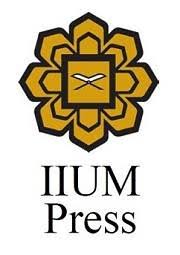MAQĀṢID AL-QUR’ĀN: EXPLORING HIGHER OBJECTIVES AND INTELLECTUAL INSIGHTS
DOI:
https://doi.org/10.31436/alburhn.v8i1.338Keywords:
Maqāṣid al-Qur’ān, Qaṣd, Maqāṣid al-sharīʻah, tafsīrAbstract
This paper examines Maqāṣid al-Qur’ān, examining its noble objectives. It delves into the essential values of preservation, justice, compassion, and knowledge, critically analyzing the origins and relevance of Maqāṣid. It enhances comprehension of Islamic teachings by examining expert viewpoints and various methods for determining Maqāṣid. The objectives include examining preservation, justice, compassion, and knowledge within the Maqāṣid al-Qur’ān framework, as well as the linguistic roots and nuances of the term Maqāṣid. It also covers historical contextualization, expert opinions, and practical execution of these objectives. It further highlights the adaptability and usefulness of Maqāṣid across societies and periods. The significance of this research lies in its potential to deepen the understanding of Islamic teachings by unravelling the higher objectives encapsulated in the Qur'ān. Through Maqāṣid al-Qur’ān, Muslims can get insights into a compassionate and just lifestyle, promoting harmony in varied civilizations. The Qur’ān's inherent value as a source of divine knowledge is emphasized, promoting intellectual and ethical development in people and societies. The findings of this research illuminate the profound nature of Maqāṣid al-Qur’ān, emphasizing its role in shaping ethical conduct and promoting justice, compassion, and knowledge. Timeless relevance comes from these higher goals' adaptability across time and societies. Expert viewpoints and methods strengthen scholarly discourse on Islamic teachings by providing detailed investigations into Maqāṣid. The study improves comprehension of Maqāṣid al-Qur’ān by revealing its higher purposes. Muslims learn a fair and compassionate way of life that works across time and culture from complete exploration.
Downloads
References
Al-Zabidi, Muḥammad ibn Muḥammad, Tāj al-ʻArūs. Dār al-Hidāyah, n.d.
Al-Farāhidī, Abū ʻAbd al-Raḥmān al-Khalīl. Kitāb al-ʻAyn. Ed. Mahdī al-Makhzūmī. Dār wa Maktabah al Hilāl, n.d.
Al-Ṭabarī, Muḥammad Ibn Jarīr, Jāmiʻ al-Bayān fī Ta’wīl al-Qur’ān. Ed. by Muḥammad Aḥmad Shākir. Mua’ssasah al-Risālah, 2000.
Al-Bukhārī, Muḥammad b. Ismāʻīl. (1997). Ṣaḥīḥ al-Bukhārī. (Tr. Muḥammad Muḥsin Khan). Riyāḍ: Darussalam Publishers.
Abū Ḥafs ʻUmar. Al-Lubāb fī ʻUlūm al-Kitāb. Beyrūt: Dār al-Kutub al-ʻIlmiyyah, 1998.
Al-Qurṭubī, Shams al-Dīn. Al-Jāmiʻ li Aḥkām al-Qur’ān. Edited by Hishām Samīr al-Bukhārī. Riyadh: Dār ʻĀlam al-Kutub, 2003.
Aḥmad ibn ʻAlī ibn Ḥajar al-ʻAsqalānī. Fatḥ al-Bārī. Bayrūt: Dār al-Maʻrifah, 1379 A.H.
Abū al-Saʻādat al-Mubark ibn Muḥammad al-Jazarī. Al-Nihāyah Fī Gharīb al-Ḥadīth wa al-Athar. Bayrūt: Al-Maktabah al-ʻIlmiyyah, 1979.
Aḥmad ibn Muḥammad al-Fayūmī. Al-Misbāh al-Munīr. Bayrūt: Al-Maktabah ‘Ilmiyyah, n.d.
Al-Shāṭibī, Ibrāhīm ibn Mūsā. Al-Muwāfaqāt. Edited by Abū ʻUbaydah. Dār ibn ʻAffān, 1997.
Al-Ghazzālī, Abū Ḥāmid. Jawāhir al-Qur’ān. Bayrūt: Dār Iḥyā’ al-ʻUlūm, 1985.
Al-Andalūsī, Ibn ʻAtiyyah. Al-Muḥarrir al-Wajīz. Edited by ʻAbd al-Salām al-Shaqī. Bayrūt: Dār al-Kutub al-ʻIlmiyyah, 1993.
Al-Rāzī, Muḥammad ibn ʻAbī Bakr. Mukhtār al-Ṣiḥāḥ. Bayrūt: Maktabah Lubnān, 1995.
Al-Munāwī, Muḥammad ʻAbd al-Ra’ūf. Al-Tawqīf ʻAlā Muhimmāt al-Taʻārīf. Beyrūt: Dār al-Fikr, 1410 A.H.
Adam, Fadzli Hj, and Asyraf Hj Ab. Rahman. Tafsīr and Mufassirūn: An Overview. Kuala Lumpur: A.S. Noordeen, 2003.
ʻAbd al-Ḥamīd ibn Muḥammad. Al-Madkhal Ilā al-Tafsīr. Cairo: Maktabh al-Zahrā, 1992.
Abdul-Raof, Hussein. Schools of Qur’ānic Exegesis: Genesis and Development. London and New York: Routledge, 2010.
Ibn Manẓūr, Muḥammad ibn Mukarram. Lisān al- ʻArab. Bayrūt: Dār Sadar, n.d.
Ibn Muḥammad, Abū al-Qāsim al-Ḥusayn. Mufradāt Fī Gharīb al-Qur’ān. Bayrūt: Dār al-Maʻrifah, n.d.
Ibn ʻĀshūr, Muḥammad al-Ṭāhir. Al-Taḥrīr wa al-Tanwīr. Tūnisia: Dār Sahnun, 1997.
Ibn Bayyah, ʻAbd Allāh. ʻAlāqah Maqāṣidal-Sharīʻah bi Usūl al-Fiqh. London: Wimbledon, Al-Furqān Islāmic Heritage Foundation, n.d.
Ibn Qutaybah, Abū Muḥammad ʻAbd Allāh ibn Muslim. Tafsīr Gharīb al-Qur’ān. Edited by Aḥmad Saqr. Bayrūt: Dār al-Kutub al-ʻIlmiyyah, 1978.
Ibn Kathīr. Tafsīr al-Qur’ān al-ʻAẓīm. Dār Ṭaybah, 1999.
Ibn Qudāma Al-Maqdasī, ʻAbd Allāh ibn Aḥmad ibn Muḥammad. Lumʻah al-I‘tiqād. Saudi Arabia: the Ministry of Endowment and Islāmic Affairs, 2000.
Ibn ʻĀshūr. Al-Taḥrīr wa Al-Tanwīr. Bayrūt: Mu’assasat al-Tārīkh, 2000.
Muḥammad ibn Ismāʻīl al-Bukhārī. Al-Jāmiʻ al-Ṣaḥīḥ al-Mukhtasar. Beyrūt: Dār ibn Kathīr, 1987.
Maḥmūd Shaltūt, ʿIla al Qur’ān al-Karīm. Cairo: Dār al-Shurūq.
Muḥammad ʿAbduh, Fī Tafsīr al-Qur’ān in Al-Aʿmāl al-Kāmilah li al-Imām Muḥammad ʿAbduh, edited by Muḥammad ʿImārah. Cairo: Dār al-Shurūk, 1993.
Rashīd Riḍā, Muḥammad. Al-Waīy al-Muḥammadī. Beyrūt: Foundation of ʿIzz Al-Dīn, 1306 H.
Rūhī Baʻlabakkī. Al-Mawrid. Bayrūt: Dār al-ʻIlm li al-Malāyīn, 2001.
Rashīd Riḍā, Muḥammad. Tafsīr al-Manār. Egypt: Al-Hay’ah al-Miṣriyyah, 1990.
Downloads
Published
How to Cite
Issue
Section
License
In general, reusing or reproducing substantial portions of al-Burhān content requires permission. This includes the use of text, figures, tables, multimedia content, and any other material published in any issues of al-Burhān Journal of Qur'an and Sunnah Studies. For some instances, al-Burhān may make its content freely viewable; however, such material may require permission for reuse. To seek permission, please contact the editorial.









